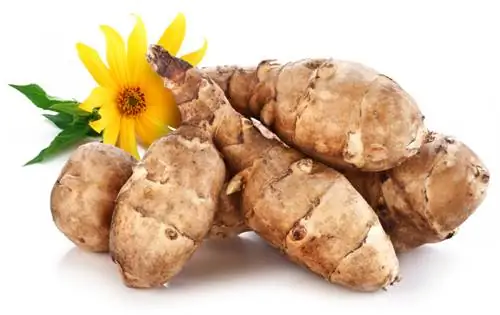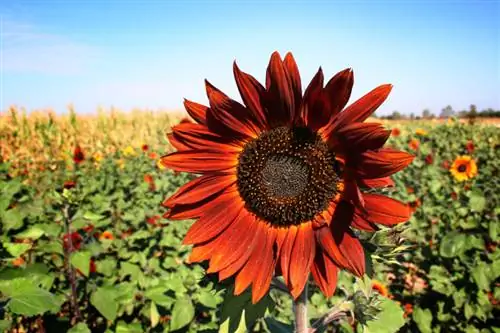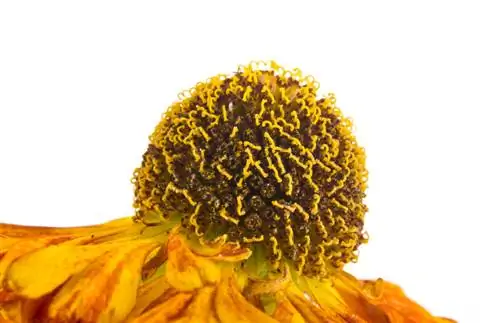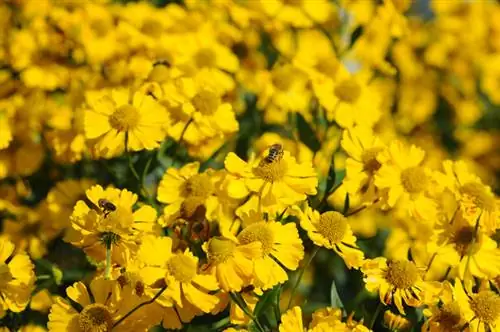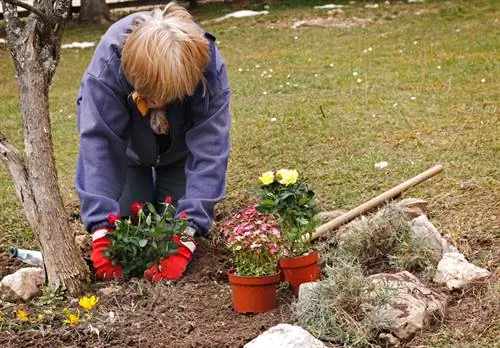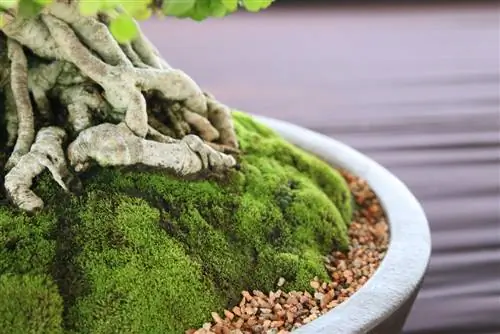- Author admin leonars@hobbygardeners.com.
- Public 2023-12-16 16:46.
- Last modified 2025-01-23 11:20.
Sunflowers are not only grown because of their beautiful flowers, as privacy screens or for harvesting the seeds in the garden. Sunflower roots are also good soil conditioners. Some are even edible.
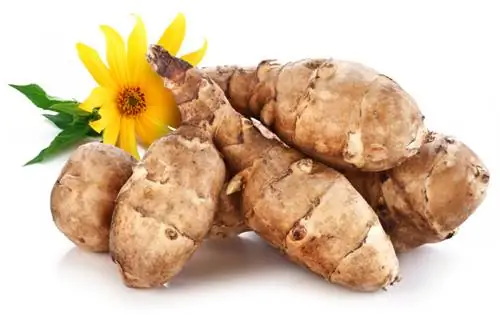
What properties do sunflower roots have?
Sunflower roots are deep-growing soil conditioners that absorb pollutants and loosen the soil. They should be cut above the ground in autumn and left in the soil to release nutrients. Some roots, such as Jerusalem artichoke, are edible and serve as a he althy vegetable alternative.
Interesting facts about the roots of the sunflower
The roots of the sunflower form a wide and deep network underground. Given the size of some sunflower varieties, this is not surprising.
Some roots of perennial sunflowers thicken and become tubers. The most famous example is the Jerusalem artichoke.
Sunflower roots do not tolerate waterlogging
When growing sunflowers in the garden, make sure the soil is always moist. However, the roots of the sunflower cannot tolerate waterlogging at all. They then begin to rot, causing the plant to die quickly.
Therefore, only plant sunflowers in well-drained soil from which moisture can drain quickly, for example after a heavy downpour.
Sunflower roots as soil improvers
The roots of the sunflower also penetrate deep layers of the earth. The annual sunflower (Helianthus annuus) is therefore often grown as a soil improver.
The flower not only absorbs pollutants through its roots, but also loosens the soil at the same time. If the roots are not pulled out after harvesting, they decompose and thereby supply the soil with additional nutrients.
You should therefore cut your sunflowers above the ground in autumn and leave the sunflower roots in the ground.
The edible roots of Jerusalem artichoke
The roots of the Jerusalem artichoke are also called the “diabetics’ potato” because they contain inulin, a starchy carbohydrate that is also well tolerated by diabetics.
The roots of this type of sunflower can be prepared raw or cooked as:
- Salad
- Vegetable side dish
- Soups
- Sauces
- puree
If you have enough space in the garden, you should grow a few Jerusalem artichoke plants so that you can bring fresh vegetables to the table in autumn and winter. However, Jerusalem artichoke tends to spread over the entire garden and is therefore best planted with a root barrier (€42.00 on Amazon).
Tips & Tricks
When caring for sunflowers in pots, make sure that the planter has enough drainage holes. If you place the pots on a saucer, pour off excess water and rainwater as soon as possible. This is especially advisable after heavy rain.

